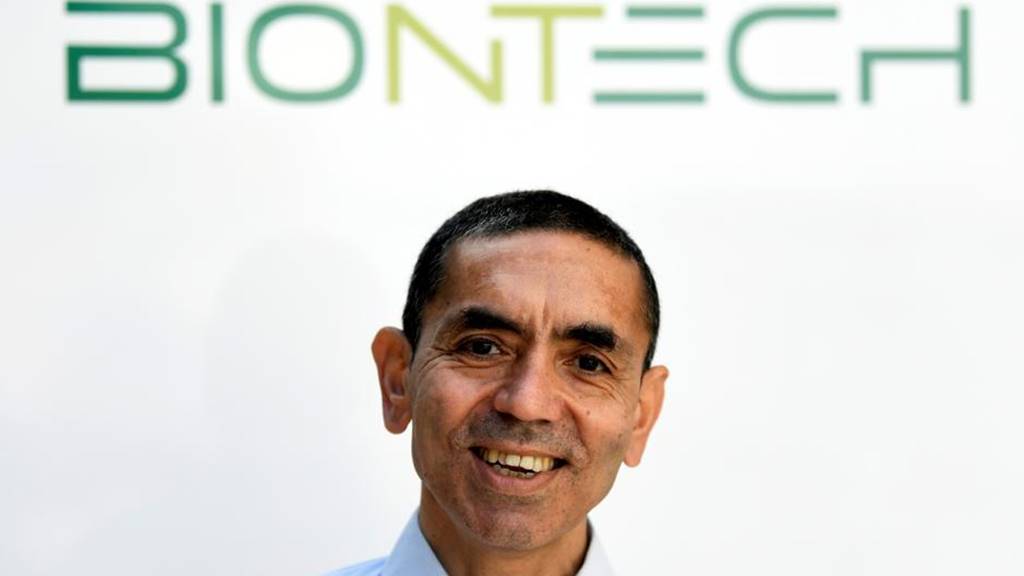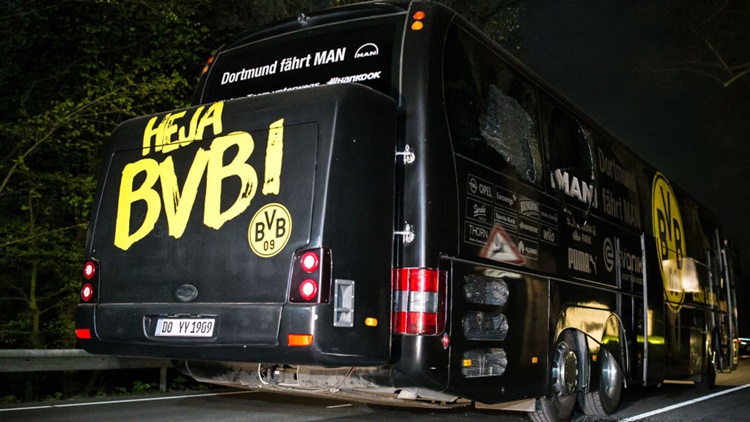
In the middle of the November gray and the gloomy lockdown light everyday life, the success message of the Mainz company Biontech and the US pharmaceutical company Pfizer for the development of a corona vaccine burst on Monday. There is hardly anything the world is currently waiting for as much as for effective protection against the virus. But as great as the joy of the impressive interim results of the western vaccine manufacturers is – many questions remain.
What is known about BNT162b2
Biontech and Pfizer were the first western manufacturers to publish the results of a study that was crucial for approval on Monday. Accordingly, your vaccine offers more than 90 percent protection against the disease Covid-19. Serious side effects have not yet been registered, it said. The companies expected to apply for approval from the US FDA starting next week.
Biontech had been developing the BNT162b2 vaccine in the “Lightspeed” project since mid-January. The phase 3 study, which is crucial for approval, began in late July. By Monday, more than 43,500 people had received at least one of the two vaccinations, which are given every three weeks. According to the manufacturer, vaccination protection is achieved one week after the second injection.
How does the Biontech vaccine work?
The Biontech preparation is a so-called RNA vaccine, which is based on a completely new mechanism. It contains genetic information about the pathogen, from which the body produces a virus protein – in this case the surface protein that the virus uses to enter cells. The aim of vaccination is to stimulate the body to produce antibodies against this protein in order to intercept the viruses before they enter the cells and multiply.
90 percent protection – is that a lot?
Yes. However, this information is so far only based on a brief notification from the manufacturer. Virologists are therefore still cautious in their assessment. “I hope that the data will be published as soon as possible so that you can get a more precise picture,” said Stephan Becker, head of the Institute for Virology at the University of Marburg, the German Press Agency. Overall, however, he speaks of “a very positive result”.
Clemens Wendtner from the Munich Clinic Schwabing was also surprised by the high effectiveness, which Biontech and Pfizer state with over 90 percent. “This is remarkable because many ongoing vaccination studies on Covid-19 currently only require a success rate of at least 50 percent.” The US FDA had also set an effectiveness of 50 percent as the minimum value for a possible approval.
If the high effectiveness of more than 90 percent is confirmed, “this would be an unexpectedly high vaccination efficiency,” says Leif-Erik Sander, head of the research group on infection immunology and vaccine research at the Charité in Berlin. Many routine vaccines, such as those for influenza, did not achieve such high levels. “This is all the more astonishing given that no vaccine has ever been approved using mRNA technology.”
What is known about possible side effects?
Little so far. According to the company, there have been no safety-relevant side effects so far. Charité virologist Sander points out, however, “that the observation period for relevant vaccine side effects is still too short”.
What do you not know?
It is unclear whether the vaccine is equally effective in different groups – especially risk groups such as the elderly. Seniors would probably need larger amounts of vaccine because of their weaker immune systems, adds Sebastian Ulbert, Head of Immunology at the Fraunhofer Institute for Cell Therapy and Immunology in Leipzig.
Virologist Sander also misses information on how much the vaccination protects against severe courses of Covid-19. “In addition, it must be shown how long the vaccination protection lasts.” Biontech boss Ugur Sahin assumes that the vaccination can achieve a one-year immunization effect. But this is not yet certain. The protection against Covid 19 infection of more than 90 percent announced in the interim analysis was achieved 28 days after the start of the vaccination treatment.
What’s next now?
The companies Biontech and Pfizer want to submit an application for approval of a corona vaccine in the USA soon. They expect to apply for comprehensive emergency approval of the vaccine for people aged 16 to 85 in the US in the coming weeks. To do this, the companies must have collected security data from around half of the approximately 44,000 study participants for two months. This goal is to be achieved next week.
How fast can the vaccine be produced?
Biontech and Pfizer, who are already working together to develop mRNA-based vaccines against influenza, currently estimate that up to 50 million doses of the coronavirus vaccine will be produced globally this year. That would be enough to vaccinate 25 million people. Up to 1.3 billion cans are to be produced in 2021.
Based on the supply agreement with the United States, the price for a treatment with two doses of vaccine is expected to be $ 39. Other industrialized countries should not receive a lower price than the US, it said in July.
During the pandemic, there is an accelerated approval procedure in Europe with the European Medicines Agency (EMA). If vaccine approvals otherwise sometimes take years, pharmaceutical companies can now report their vaccine candidates to the EMA in a kind of preliminary procedure for approval during the phase of clinical studies. To this end, data is continuously submitted and evaluated by the EMA (rolling review process). At the moment, in addition to Biontech, the British-Swedish company Astrazeneca is also taking this path.
However, this procedure does not mean that less data has to be submitted, stressed the ethics council chairman Alena Buyx on Monday. There will be no provisional approval in Europe. Once the EMA experts have read and rated thousands of pages of results from all the prescribed clinical phases, they give their recommendation to the European Commission. It decides whether admission is granted. In the positive case, it grants approval for all EU member states. Many experts expect the first approvals for this year or the beginning of 2021.
Speed should not come at the expense of thoroughness, says the German Paul Ehrlich Institute (PEI), which approves medicinal products nationally. Because vaccinations can have side effects or cause damage if they are not extensively tested and evaluated.
How long does it take for a vaccine to be available after approval?
In order to be supplied with the coveted product at an early stage, the EU and other countries are already concluding supply contracts with pharmaceutical companies. Framework agreements with the pharmaceutical companies Johnson & Johnson, Astrazeneca and Sanofi-GSK have so far been signed by the EU Commission. Such a contract is still being negotiated with Biontech / Pfizer, said a commission spokesman on Monday.
Health Minister Jens Spahn increased the pressure on ZDF: He wanted the EU to reach a deal with Biontech and Pfizer “in the next few days”. “As the German health minister, I would find it difficult to explain if a vaccine produced in Germany were vaccinated more quickly in other regions of the world than in Germany itself,” stressed Spahn. That is why the federal government is putting pressure on the EU Commission “that the contract will now be signed quickly”.
But even if Biontech goes into production before approval: the company is far from being able to cover these large quantities required, at least initially.
In a thesis paper, Matthias Schrappe, internist at the University of Cologne, assumes that it would take around a thousand working days – i.e. four years – to vaccinate around 60 million people in Germany. And only if 60,000 vaccinations can be administered per day. Therefore the daily capacities have to be increased.
At the beginning of November the federal and state governments had agreed that the federal government would procure and finance the vaccines. The federal states take care of the necessary accessories and independently set up vaccination centers. A total of up to 60 locations is currently assumed. As soon as it is available, the vaccine will be delivered to these locations either by the Bundeswehr or by the companies themselves.
And everything will be okay with the vaccine?
Vaccine here – Corona gone? That won’t work, at least not quickly. “The vaccine will help us to get out of the pandemic,” said the Swiss virologist Isabella Eckerle in the ARD show Hart but fair. However, there will be a long transition phase in which the corona protective measures will have to be maintained. “You shouldn’t imagine that the vaccine will come and from tomorrow we can go back to our old life,” said Eckerle, who is the director of the Center for Emerging Viral Diseases at the University of Geneva.
SPD health expert Karl Lauterbach also dampened exaggerated expectations. It would take at least a year for all of Germany to be vaccinated up to “herd immunity”. Only then can one talk about doing without mask and distance. The next few months would be very tough – 2021 will essentially be another year of restrictions.
The chairman of the World Medical Association, Frank Ulrich Montgomery, assessed the positive vaccine results as a “great success”. But it is not yet a breakthrough. “The study has not been evaluated to the end,” he told the “Passauer Neue Presse”. Hopes are growing that they will have a vaccine in the foreseeable future. But if the application for approval is made in November, that does not mean that the application will be approved in December.
Who is behind Biontech?
The Mainz-based company employs around 1300 people, making it a comparatively small player in the pharmaceutical business. According to the business editor of NDR info, Biontech has not yet launched a single product in its twelve-year company history. Biontech is headed by Ugur Sahin – he founded Biontech in 2008 together with his wife Özlem Türeci. Sahin is CEO and his wife is in charge of clinical development.
September 2019, the papers were issued for $ 15, now they cost more than $ 90. That catapulted Sahin into the list of the 100 richest Germans. “Die Welt am Sonntag” takes him, together with his wife, who is also on the board, to 93rd place with assets of 2.4 billion euros.




